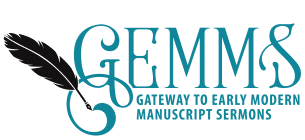Catherine Evans
ODNB (ID: 2943)
Born in Duns, Berwickshire to John Boston (1631-1701) and Alice Trotter (d. 1691). His father was a cooper, and he was the youngest of the couple's seven children. His father was imprisoned for nonconformity, and so Boston spent time visiting him at prison. When he grew older, his father took him to services held by covenanters in local fields. Boston would later date his conversion to hearing Henry Erskine preach outdoors in 1687. He attended grammar school in Duns, and then after working as a notary's assistant he went to Ediburgh University in 1691, graduating MA in 1694 and studying divinity for a few months. He found it hard to gain a settled position, working as a schoolmaster in Glencairn, Dumfriesshire as a private tutor in the house of Lieutenant-Colonel James Bruce, and as a preacher in vacant parishes around Stirling. He tried to secure a regular pulpit several times, but failed. He was then finally ordained in September 1699 at Simprin, Berwickshire, a parish of c. 90 people. He married Katharine Brown (1674-1737) in July 1700. He would be deeply devoted to his wife, particularly during periods of her illness. They had ten children, four surviving to majority. Boston was translated to Ettrick, Roxburghshire on 1 May 1707, on the first day of the Union. In 1717 he was called to Closeburn, Dumfriesshire, but managed to persuade the church that he should be allowed to continue in Ettrick. He was an extremely diligent priest, never missing a worship service in 30 years of ministry. Although Ettrick was a rural and obscure parish, Boston became well known as a theologian, playing a role in many of the ecclesiastical controversies of the time. He was popular for opposing the abjuration oaths of 1712 and 1719. He refused to take them, despite the risk this exposed him to, as they conferred legitimacy upon the Church of England. He also opposed John Simpson's heresies and was at the centre of the Marrow controversy.
